About the Author
Jay Phelan teaches biology at UCLA, where he has taught introductory biology to more than 11,000 majors and non-
Jay lectures frequently on a variety of topics in education, including the nurturing of critical thinking skills in undergraduate students and the use and efficacy of online adaptive assessment systems. His research in these areas has been published in the International Encyclopedia of Education and numerous journals.
With economist Terry Burnham, Jay is co-

XXXIII
To Julia
XXXIV
Q: HOW DOES WHAT IS LIFE? SO THOROUGHLY CAPTIVATE NON-
Engaging Examples Showcase Biology in Everyday Life
What Is Life? A Guide to Biology threads fascinating, relevant, contemporary examples of the science throughout each chapter.
Brief Sections Make the Material Manageable
Each chapter is broken down into a series of short, accessible sections.
Clear and Consistent Illustrations
Fresh and easy-
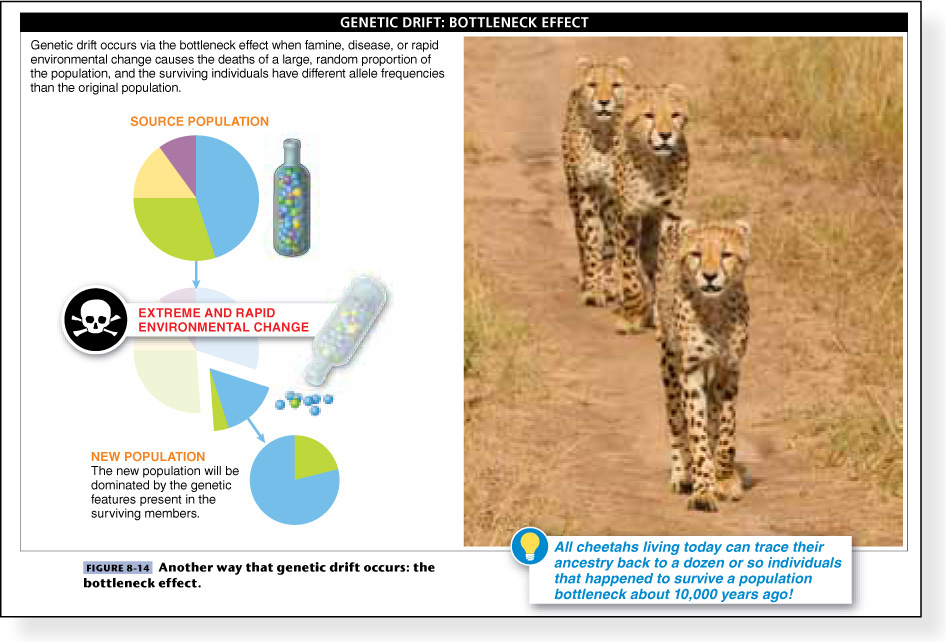
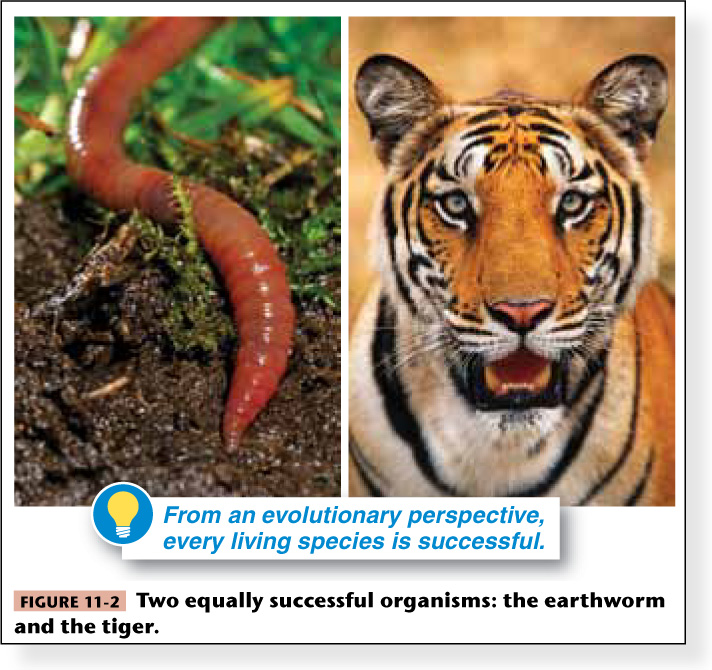
Vivid Photos Capture the Story of Biology
Striking images appear as unit openers and are combined with illustrations of biological processes, concepts, and experimental techniques to engage the imagination of the student.
Intriguing, Often Surprising Q Questions Motivate Readers
Q Questions spark students’ interest and encourage critical thinking.
Q Animations (interactive versions of these questions) are available in LaunchPad.
Q
Mammals get bigger and bigger the more they eat. Why don’t insects?
XXXV
Take-
Each section of the chapter includes a concise, memorable summary of key ideas.
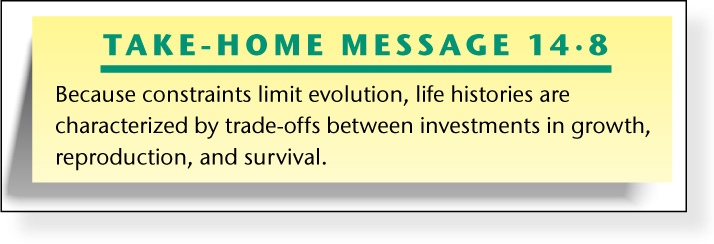
StreetBIOs Make Biology Memorable
StreetBIO: KNOWLEDGE YOU CAN USE features are found in every chapter, and demonstrate the practicality and fun of biology.

End-
Each chapter includes Key Terms, an R&R visual summary with embedded questions, and a Graphic Content feature that gives students practice in thinking critically about visual displays of data.
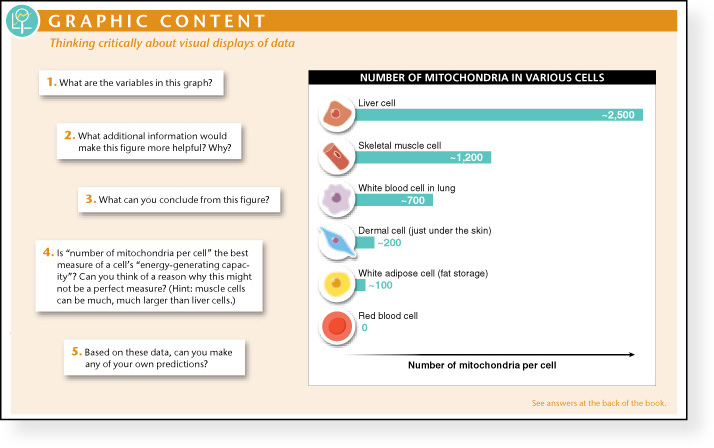
Q: WHAT’S NEW IN THE NEW EDITION?
INNOVATIVE NEW STUDY TOOLS
This Is How We Do It
In each chapter, Jay Phelan highlights an intriguing question—
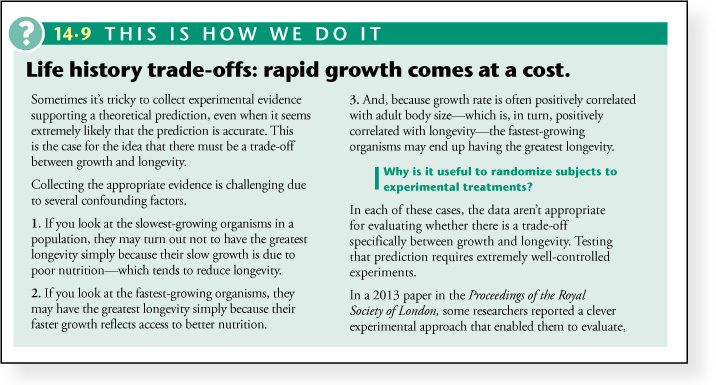
R&R (Review and Rehearse)
Each chapter now concludes with a four-
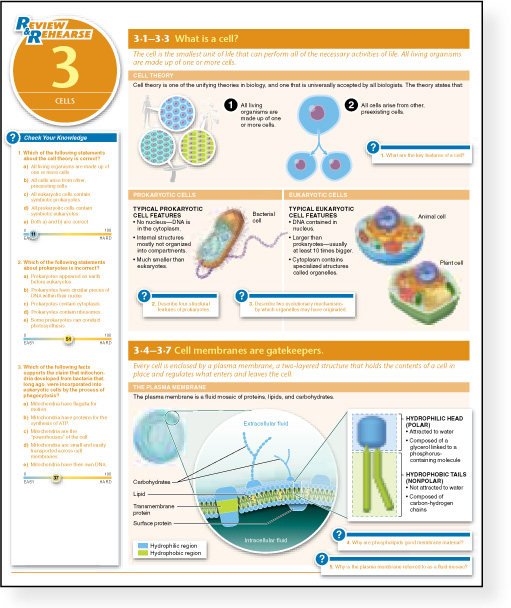
XXXVI
NEW! FOR THE INSTRUCTOR AND FOR THE CLASSROOM
From the front of the classroom to the top of the bestseller list, award-
Phelan’s dynamic approach to teaching biology is the driving force behind What Is Life?—the most successful new non-

LaunchPad
Developed with extensive feedback from instructors and students, W. H. Freeman’s new online course space offers:
 Pre-
Pre-built units for each chapter , curated by experienced educators, with media for that chapter organized and ready to assign or customize to suit your course. All online resources for the text in one location, including an interactive e-
All online resources for the text in one location, including an interactive e-Book, LearningCurve adaptive quizzing (see below), Bio 101 Tutorials, Q Animations, graph- reading and data analysis activities, assessment questions (written by the author), all instructor resources, and more.  Intuitive and useful analytics, with a Gradebook that lets you see how your class is doing individually and as a whole.
Intuitive and useful analytics, with a Gradebook that lets you see how your class is doing individually and as a whole. A streamlined interface that lets you build an entire course in minutes.
A streamlined interface that lets you build an entire course in minutes.

LearningCurve
In a game-
 A unique learning path for each student, with quizzes shaped by each individual’s correct and incorrect answers.
A unique learning path for each student, with quizzes shaped by each individual’s correct and incorrect answers. A Personalized Study Plan, to guide students’ preparation for class and for exams.
A Personalized Study Plan, to guide students’ preparation for class and for exams. Feedback for each question with live links to relevant e-
Feedback for each question with live links to relevant e-Book pages, guiding students to the reading they need to do to improve their areas of weakness.
XXXVII